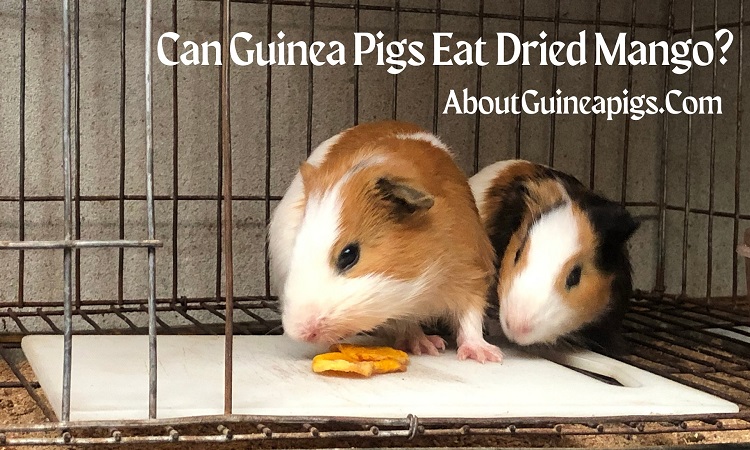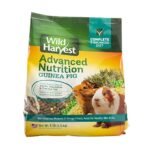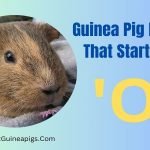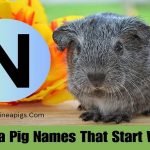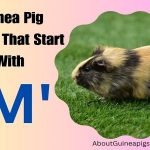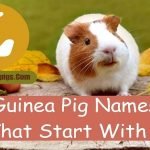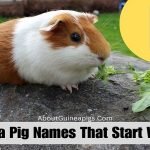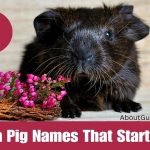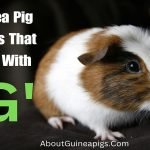I love my guinea pigs Max & Maya and I am very conscious about their healthy diet. A real life experiment can help me to find out the right diet for my guinea pigs. That’s why always I do an experiment before introducing new food to my guinea pigs Max & Maya.
Today I will do another experiment with my guinea pigs Max & Maya. I want to know about can guinea pigs eat dried mango.
Guinea pigs are adorable and sociable little creatures. They require a carefully balanced diet to thrive. As their diligent caretaker, you’re always on the lookout for safe and nutritious foods to enhance their well-being.
Among the many delectable treats available, dried mango has caught your attention as a potential addition to their diet. But before introducing this sweet and tangy snack to your guinea pigs, it’s essential to understand whether dried mango is suitable for them.
Guinea pigs are herbivores, primarily consuming a variety of fresh fruits, vegetables, hay, and pellets. While they enjoy exploring new flavors, not all foods are compatible with their delicate digestive systems.
The experiment conducted aimed to investigate whether dried mango can be included in a guinea pig’s diet, considering its nutritional value and potential impact on their health.
By examining the results of the experiment, I can determine whether guinea pigs can safely consume dried mango and gain insights into its suitability as a treat for these adorable furry companions.
Let me delve into the experiment’s details, results, and subsequent discussion to determine if dried mango is a suitable addition to the guinea pig’s menu.
Contents
Can Guinea Pigs Eat Dried Mango: The Experiment, Results, Discussion, and Recommendation
Guinea pigs are adorable and beloved pets that require a balanced and nutritious diet to maintain their overall health and well-being.
As a responsible guinea pig owner, it is crucial to explore and understand which foods are safe and suitable for our furry friends. In this experiment, the focus was on dried mango as a potential addition to the guinea pigs’ diet.
Experiment:
The experiment aimed to determine whether guinea pigs, specifically Max and Maya, would consume dried mango and whether it would be a suitable treat for them.
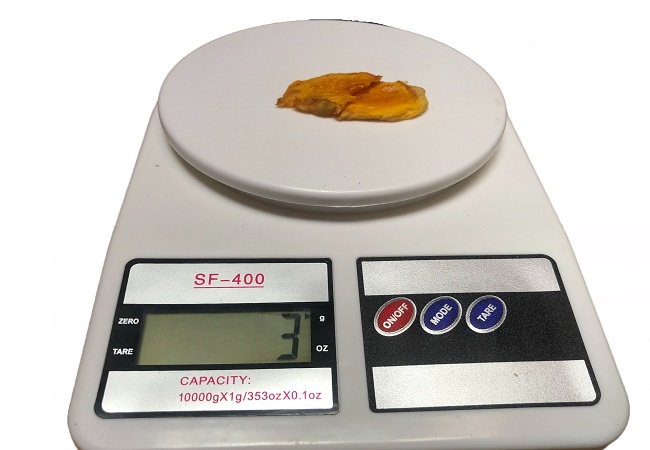
controlled amount of 3 grams of dried mango was offered to both guinea pigs.
Results:
Observations revealed that Max and Maya showed no interest in the dried mango. They sniffed the dried mango but did not consume a single bite.
All 3 grams of dried mango remained uneaten. This lack of interest and consumption indicates their disapproval of dried mango as a food source.
Dried Mango Consumed Report:
|
Descriptions |
Amounts To Eat (Max & Maya) |
|
Was Given To Eat |
3 Grams |
|
They Ate |
0 Grams |
|
Percent Ate (%) |
0% |
|
Remains |
3 Grams |
Discussion:
Guinea pigs have unique dietary requirements, and their digestive systems are specifically adapted for a herbivorous diet. While guinea pigs can eat a wide range of fruits and vegetables, it is essential to exercise caution when introducing new foods, particularly those that are not part of their natural diet.
Dried mango, although a popular human snack, may not be suitable for guinea pigs due to several factors. One consideration is the sugar content found in dried fruits, including mango. Guinea pigs have a sensitive digestive system and are prone to health issues such as obesity, diabetes, and gastrointestinal disturbances.
The concentrated sugars in dried mango can potentially lead to digestive upset and weight gain if consumed regularly or in large quantities. Moreover, the drying process alters the fruit’s texture, removing a significant amount of moisture.
Guinea pigs have a higher water requirement compared to other small pets, and their diet should ideally consist of fresh and hydrating foods. The dry and chewy texture of dried mango may not appeal to guinea pigs, leading to their reluctance to consume it.
It is worth noting that individual guinea pigs may have varying preferences when it comes to food. Some guinea pigs may show interest in dried mango, while others may not.
However, based on the results of this experiment, it can be concluded that Max and Maya, at least, did not find dried mango appealing.
You can check our video:
Can Guinea Pigs Eat Dried Fruit?
Dried fruits can be an enticing snack for humans, but when it comes to guinea pigs, certain considerations must be kept in mind. While guinea pigs are herbivores and can consume a variety of fresh fruits, dried fruits should be approached with caution due to their concentrated nature and potential impact on a guinea pig’s health.
One crucial aspect to consider is the high sugar content often found in dried fruits. Guinea pigs have sensitive digestive systems, and excessive sugar intake can lead to obesity, dental issues, and gastrointestinal problems. Therefore, it is essential to offer dried fruits to guinea pigs in moderation and as an occasional treat.
When selecting dried fruits for your guinea pigs, opt for natural and unsweetened varieties. Avoid dried fruits that have undergone processes involving added sugars, preservatives, or artificial flavors, as these can be harmful to guinea pigs. Instead, look for dried fruits that retain their natural flavors and nutritional value.
It’s important to note that not all dried fruits are safe for guinea pigs. Some dried fruits, such as raisins, currants, and dried figs, have a higher sugar content and may pose health risks if consumed by guinea pigs. These fruits should be avoided to prevent potential complications.
Safe options for dried fruits that can be given to guinea pigs in small quantities include dried apples, dried apricots, dried cranberries, dried peaches, dried plums, dried papaya and more.
However, even with these safe options, it is crucial to introduce new foods gradually and monitor your guinea pigs for any adverse reactions or digestive issues.
To minimize the risk of choking, ensure that the dried fruits are cut into small, bite-sized pieces appropriate for guinea pigs. Additionally, the tough and chewy texture of dried fruits may pose a challenge for guinea pigs to consume comfortably.
Therefore, observe your guinea pigs while they eat to ensure they can handle the texture without any difficulties. While dried fruits can offer some nutritional benefits to guinea pigs, it’s important to remember that they should not replace the main components of a guinea pig’s diet.
Fresh vegetables, high-quality hay, and appropriate guinea pig pellets should make up the majority of their daily nutritional intake.
Before introducing any new food, including dried fruits, to your guinea pigs, it is always recommended to consult with a veterinarian knowledgeable about guinea pig care.
They can provide specific guidance based on your guinea pig’s individual needs and help ensure a well-balanced and safe diet for your furry companions.
Do Guinea Pigs Eat Dried Mango?
Guinea pigs can eat dried mango, but it is not recommended as a regular part of their diet. While some guinea pigs may enjoy the taste of dried mango, there are several factors to consider before offering it to them.
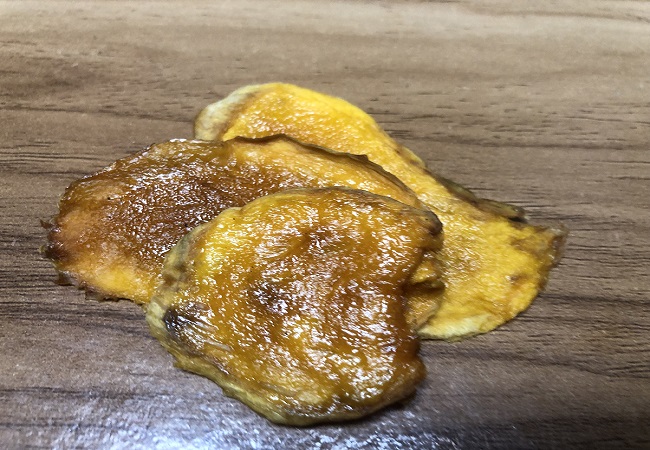
Dried mango has high sugar content due to the dehydration process, which concentrates the natural sugars present in the fruit.
Guinea pigs have a sensitive digestive system, and consuming excessive amounts of sugar can lead to health issues such as obesity, diabetes, and digestive upset. Therefore, dried mango should only be given as an occasional treat in small quantities.
Furthermore, dried fruits, including dried mango, have a reduced moisture content compared to fresh fruits. Guinea pigs require a diet that includes foods with high water content to stay properly hydrated.
While dried mango may provide some nutritional value, it does not fulfill their hydration needs. Fresh fruits and vegetables should be the primary source of moisture for guinea pigs.
When offering dried mango to your guinea pig, it is important to monitor their reaction and digestion. Some guinea pigs may not show interest in dried mango, while others may enjoy it. Always introduce new foods gradually and observe for any signs of adverse reactions or digestive issues.
Why Can’t Guinea Pigs Eat Dried Mango?
In this experiment, you saw that guinea pigs didn’t show any interest in dried mango. It happened may be due to several reasons. Below I discussed some important reasons that may be happened.
Guinea pigs didn’t eat dried mango may be due to several reasons:
High Sugar Content:
Dried mango is known for its naturally sweet taste. However, the drying process concentrates the sugars present in the fruit, making it significantly higher in sugar content compared to fresh mango.
Guinea pigs have a sensitive digestive system and are prone to health issues such as obesity, diabetes, and gastrointestinal disturbances. The concentrated sugars in dried mango can potentially lead to these health problems if consumed regularly or in large quantities.
Lack of Moisture:
Drying fruits removes significant moisture, resulting in a dry and chewy texture. Guinea pigs have a higher water requirement compared to other small pets, and their diet should ideally consist of fresh and hydrating foods. The lack of moisture in dried mango may not be suitable for their hydration needs.
Fiber Content:
Fresh fruits, including mangoes, are typically a good source of dietary fiber. However, during the drying process, the fiber content in fruits can be reduced. Guinea pigs require a sufficient amount of fiber in their diet to support their digestive health. The reduced fiber content in dried mango may not provide the same benefits as fresh mango.
Choking Hazard:
Dried mango tends to have a chewy and rugged texture, which can pose a choking hazard for guinea pigs. Their small size and delicate digestive systems make them more susceptible to choking on food that is not easily chewed or broken down.
Frequently Asked Questions
Q: Can guinea pigs eat freeze dried mango?
A: No, guinea pigs should not eat freeze-dried mango. While freeze-dried fruits can be a healthier alternative to dried fruits, it is still not recommended for guinea pigs.
The high sugar content and lack of moisture in freeze-dried mango can lead to digestive issues and health problems for guinea pigs. It’s best to stick to fresh fruits and vegetables as part of their balanced diet.
Q: Do guinea pigs like dried mango?
A: Guinea pigs may have varying preferences, but generally, they do not show a strong liking for dried mango. It is common for guinea pigs to be less interested in dried fruits due to their chewy texture and concentrated sugar content.
Each guinea pig is unique, so while some individuals may enjoy dried mango, it is not a preferred or recommended food for them. They also not like to eat mango skin.
Q: Is dried mango safe for guinea pigs?
A: No, dried mango is not considered safe for guinea pigs. Dried mango has a high sugar content and lacks the necessary moisture for a guinea pig’s diet.
Excessive sugar intake can lead to health issues in guinea pigs, including obesity and digestive problems. It is best to stick to fresh fruits and vegetables that are suitable for guinea pigs and consult with a veterinarian for specific dietary recommendations.
My Final Opinion
the experiment demonstrated that guinea pigs Max and Maya did not consume dried mango when offered 3 grams.
While guinea pigs can enjoy a variety of fruits and vegetables, it is important to prioritize their health and well-being by focusing on fresh, water-rich options.
Before introducing any new food, it is advisable to consult with a veterinarian specializing in small animal care to ensure the diet remains balanced and appropriate for guinea pigs.
Useful Links: Dried Mango: Nutrition Facts, Health Benefits & Side Effects
